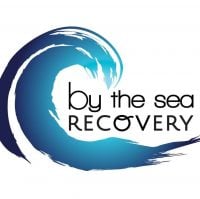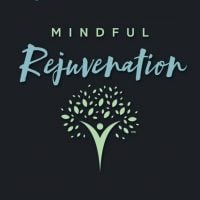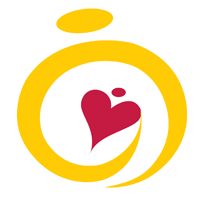Turning Point Crisis Center
Drug Rehab Center in Oceanside, California
Turning Point Crisis Center is a 16-bed addiction treatment facility located in Oceanside, CA that provides personalized attention tailored to each client's needs, with dual-diagnosis, outpatient and inpatient levels of care accredited by CARF, SAMHSA and licensed by the state, as well as evidence-based approaches such as individualized counselling sessions, group therapy, family therapy, aftercare programs and relapse prevention techniques.
About This California Facility
Located in Oceanside, California, Turning Point Crisis Center is a beacon for adults facing acute psychiatric crises, offering an alternative to hospitalization. This short-term acute residential treatment facility specializes in mental health crisis stabilization and psychosocial rehabilitation through a community-based approach. Licensed and certified, with 16 beds available, Turning Point promotes recovery in a homelike environment, utilizing evidence-based practices and a biopsychosocial model aimed at reintegration into the community.
Accredited by CARF and SAMHSA, and holding a State License, Turning Point ensures high-quality care tailored to each individual. The center's multidisciplinary team, including counselors, clinicians, nurses, psychiatrists, and peers, are dedicated to addressing psychiatric conditions and dual diagnoses through a comprehensive range of services. Treatment typically spans an average of nine days, focusing on crisis intervention, individual and group therapy, and connecting individuals with community resources.
- Evidence-Based Therapy: Tailored to address mental health and substance use disorders, facilitating recovery and successful reintegration into society.
- Community-Focused Environment: Meals and group activities encourage connection, reduce isolation, and build a supportive community among residents.
- Multidisciplinary Support: A team of mental health professionals provides individualized care, including psychiatry, counseling, and psychosocial rehabilitation.
Turning Point Crisis Center treats a spectrum of psychiatric conditions, including bipolar disorder, anxiety, depression, schizophrenia, and more, alongside substance use disorders. Through individual and group therapy, including diverse modalities like experiential therapy and psycho-education, the center offers dual diagnosis treatment, outpatient, and inpatient care, supported by medication management as needed.
Genders
Ages
Modality
Additional
Accreditations
State License
SAMHSA

CARF
The Commission on Accreditation of Rehabilitation Facilities (CARF) is a non-profit organization that specifically accredits rehab organizations. Founded in 1966, CARF's, mission is to help service providers like rehab facilities maintain high standards of care.
Conditions and Issues Treated
People with dual diagnosis have coexisting addiction and a mental disorder. 9.2 million US adults had a co-occurring disorder in 2018, so not just limited to California residents. Best treatment combines medication, psychotherapy (talk therapy), support group, and inpatient rehabilitation. Sometimes, complementary therapies – yoga, massage, and acupuncture – may also be used.
Levels of Care Offered at Turning Point Crisis Center
This center offers a variety of custom treatment tailored to individual recovery. Currently available are Dual-Diagnosis, Inpatient, Outpatient, with additional therapies available as listed below.
Inpatient rehab means living at the Oceanside, CA facility while all aspects of an addiction or co-occurring disorder get addressed. This helps limit the distractions and increase the focus on recovery. Typical inpatient rehab stays are approximately one month long.
Outpatient treatment plans cover diagnosis, detoxification, management, and counseling. They are a popular option for those who have graduated from inpatient facilities. Services in California include medication-assisted treatment (MAT) and individual and group therapy.
Therapies & Programs
Couples therapy aims to rebuild the trust between the partners. Partner’s involvement in the process will result in greater chances of treatment success. Couples therapy addresses financial issues, loss of trust, lack of intimacy, and physical abuse.
Family therapy is a set of therapeutic approaches that assumes that the entire family is a system. It utilizes the strengths and resources of the family to help the patient refrain from resorting to substance abuse. The impact of substance abuse is not just on the patient but on the entire family. Family therapy ensures that the patient gets adequate support from the family members after the treatment making the recovery process sustainable
- Family therapy guides all the members of the family to help the patient.
- It helps to repair relationships and improve communication between family members.
- It helps to keep the patient engaged and motivated throughout the treatment.
Group therapy is an important tool in recovery. Finding a peer group in Oceanside, CA and others who relate to your situation is a fundamental tool for recovery at Turning Point Crisis Center. Addiction tends to lead to isolation and feelings of uniqueness. The accountability and friendship that is found in group therapy can be more effective than any single other treatment approach. This is generally introduced early in recovery and is recommended as a lifetime treatment habit.
Trauma therapy is a way of addressing trauma while in a safe situation in order to heal. This may involve Turning Point Crisis Center managing individual or group counseling or both. Other forms of therapy have been proven to assist in healing past traumas.
A type of cognitive-behavioral therapy is Dialectical Behavioral Therapy. It is intended for those who are vulnerable to self-harm and suicidal thoughts. Turning Point Crisis Center aims to help patients understand the connection between their feelings, emotions, and behaviors and provide them with the tools to make a difference in Oceanside, CA. For those whose addictions and habits originate from severe mental health problems, it is beneficial.
Negative feelings are common in substance abuse disorders. If not recognized, they can cause co-occurring disorders. CBT involves strategies that help to change the thinking and behavioral pattern. It can be administered as a monotherapy as well as a part of combination therapy.
Rehabilitation is not just limited to bringing an individual out of addiction and achieving sobriety. It is considered complete only when an individual starts leading a normal and balanced life. Life skill therapy focuses on the various skills that help an individual to lead a normal life. Patients often do not take care of themselves, struggle professionally, and withdraw from social interaction due to addiction’s physical and emotional disturbances.
Life skills therapy helps people in California improve various personal, professional, and social skills such as cooking healthy meals, maintaining proper hygiene, budgeting, decision-making, time management, regulation of emotions, and effectively resolving interpersonal conflicts.
Nutrition therapy, also called medical nutrition therapy (MNT), addresses the unique needs of the recovering person’s diet. Due to addiction’s devastating toll on a person’s physical health, healthy eating must be addressed as soon as therapy starts. A good diet helps boosts a recovering person’s ability to fully participate in Turning Point Crisis Center therapy.
Nicotine replacement therapy (NRT) is a treatment that helps people to quit smoking. In nicotine replacement therapy, a controlled amount of nicotine is provided in the form of gums, patches, or sprays. They do not contain the harmful chemicals usually found in tobacco products. NRT reduces the withdrawal symptoms by giving nicotine in low doses. However, NRT provides relief only from the physical withdrawal symptoms. The emotional and psychological aspects of quitting needs to be treated separately. While NRT is safe for most adults, teens and pregnant women should not undergo NRT. Research shows that the use of NRT doubles the chances of quitting smoking.
Patient Experience
Experiential Therapy at Turning Point Crisis Center
Experiential therapy works by using tools and activities to recreate past experiences. Role-playing, arts and crafts, music, animal care, rock climbing, etc. are some of the activities used in this therapy. It is different from medication and talk therapy and suits those who have difficulty expressing themselves.
Payment Options Accepted
For specific insurance or payment methods please contact us.
Is your insurance accepted?
Ask an expert, call (888) 674-0062
Additional Details
Specifics, location, and helpful extra information.
Oceanside, California 92054 Phone Number(760) 439-2800 Meta DetailsUpdated April 15, 2024
Staff Verified
Patient Reviews
There are no reviews yet. Be the first one to write one.
Oceanside, California Addiction Information
More than 3 million of California's citizens are addicted to illegal drugs. Almost 800,000 people use hard drugs, almost 5 million use marijuana, and another 2.1 million abuse alcohol every year. Other substance abuse issues such as binge drinking and teen drug use are also common. Many illegal drugs such as cocaine, heroin, methamphetamine, and marijuana are smuggled into the state from Mexico.
The drug addiction problem in Oceanside, California, is relatively bad. Approximately 9.8 percent of people in Oceanside, CA, abuse drugs. Additionally, there were 947 reported deaths due to drug overdoses in Oceanside, CA, from 2013 to 2015. Oceanside residents' most commonly abused drug is marijuana. There are many different types of drug treatment available in Oceanside, California. Some common options include inpatient treatment, outpatient treatment, and 12-step programs.
Treatment in Nearby Cities
- Santa Rosa, CA (471.7 mi.)
- El Centro, CA (107.8 mi.)
- Compton, CA (70.2 mi.)
- Turlock, CA (357.5 mi.)
- Rosemead, CA (74.8 mi.)
Centers near Turning Point Crisis Center
The facility name, logo and brand are the property and registered trademarks of Turning Point Crisis Center, and are being used for identification and informational purposes only. Use of these names, logos and brands shall not imply endorsement. RehabNow.org is not affiliated with or sponsored by Turning Point Crisis Center.








